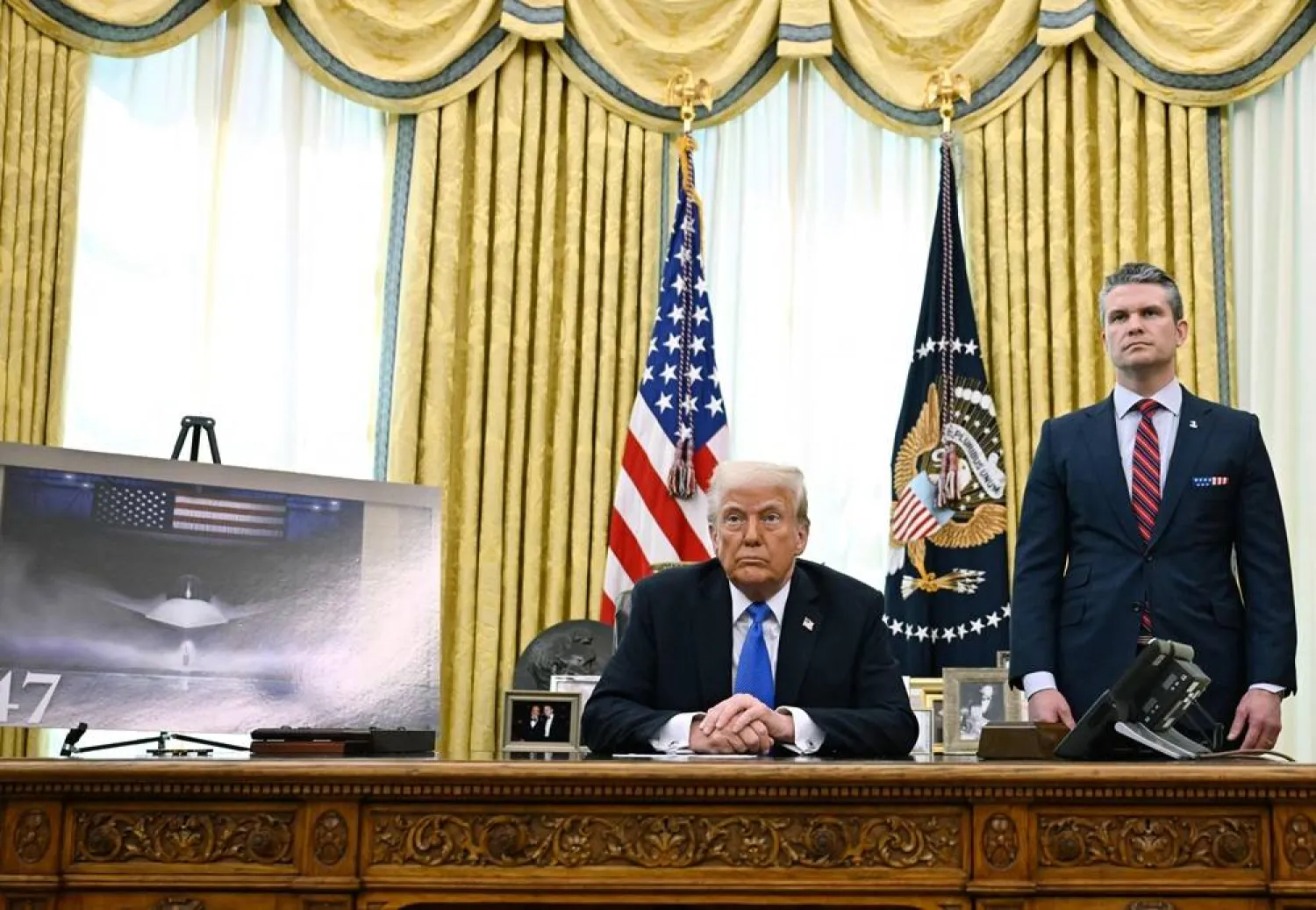US President Donald Trump awarded Boeing on Friday the contract to build the US Air Force's most sophisticated fighter jet yet, dubbed the F-47, handing the company a much-needed win.
The Next Generation Air Dominance program will replace Lockheed Martin's F-22 Raptor with a crewed aircraft built to enter combat alongside drones.
Trump, the 47th president, announced the new jet's name, the F-47.
"We've given an order for a lot. We can't tell you the price," Trump told reporters in the Oval Office.
"Our allies are calling constantly," Trump added, saying foreign sales could be an option. "They want to buy them also."
For Boeing, the win marks a reversal of fortune for a company that has struggled on both the commercial and defense sides of its business. It is a major boost for its St. Louis, Missouri, fighter jet production business.
The engineering and manufacturing development contract is worth more than $20 billion. The winner will eventually receive hundreds of billions of dollars in orders over the contract's multi-decade lifetime.
Shares of Boeing rose 4% after the news. The US company beat out Lockheed Martin for the deal. Lockheed's shares fell nearly 7%.
Reuters reported Boeing's victory before the official announcement.
The plane's design remains a closely held secret, but would likely include stealth, advanced sensors, and cutting-edge engines.
"Compared to the F-22, the F-47 will cost less and be more adaptable to future threats - and we will have more of the F-47s in our inventory," said Chief of Staff of the Air Force General David Allvin.
Boeing and Lockheed did not immediately respond to requests for comment.
NGAD was conceived as a "family of systems" centered around a sixth-generation fighter to counter adversaries such as China and Russia.
Allvin added the F-47 will have significantly longer range, more advanced stealth, and will be more sustainable and more easily supported than the F-22.
MAJOR WIN
Boeing's commercial operations have struggled as it attempts to get its best-selling 737 MAX jet production back up to full speed, while its defense operation has been weighed down by underperforming contracts for mid-air refueling tankers, drones and training jets.
"The win is a major boost for the company, which has struggled with cost overruns, schedule delays and execution on other DoD programs," said Roman Schweizer, an analyst at TD Cowen.
Cost overruns at the KC-46 mid-air refueling tanker program have surpassed $7 billion in recent years, while another fixed-price contract to upgrade two Air Force One planes has created a $2-billion loss for the top 5 US defense contractor.
Boeing has faced ongoing scrutiny since a series of crises including a mid-air emergency in January 2024 involving a new Alaska Airlines 737 MAX 9 missing four key bolts. In January, Boeing reported an $11.8-billion annual loss - its largest since 2020 - due to problems at its major units, along with fallout from a crippling strike that shuttered production of most of its jets.
Boeing has ceded ground to rival Airbus in the delivery race and entered the crosshairs of regulators and customers following a series of missteps. The Federal Aviation Administration in early 2024 imposed a production cap of 38 MAX planes per month.
Lockheed, which was recently eliminated from the competition to build the Navy's next-generation carrier-based stealth fighter, faces an uncertain future in the high-end fighter market after the loss.
Billionaire and presidential adviser Elon Musk has voiced skepticism about the effectiveness of crewed high-end fighters, saying cheaper drones were a better option.
While Lockheed could still protest the award to Boeing, the fact Trump announced the deal in a high-profile Oval Office press conference could reduce the possibility of a public airing of arguments against the agreement from the Bethesda, Maryland-based defense firm.









